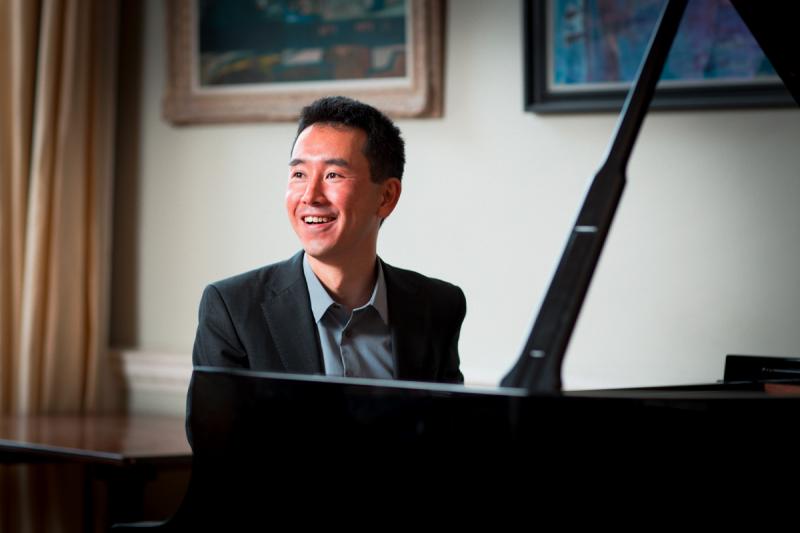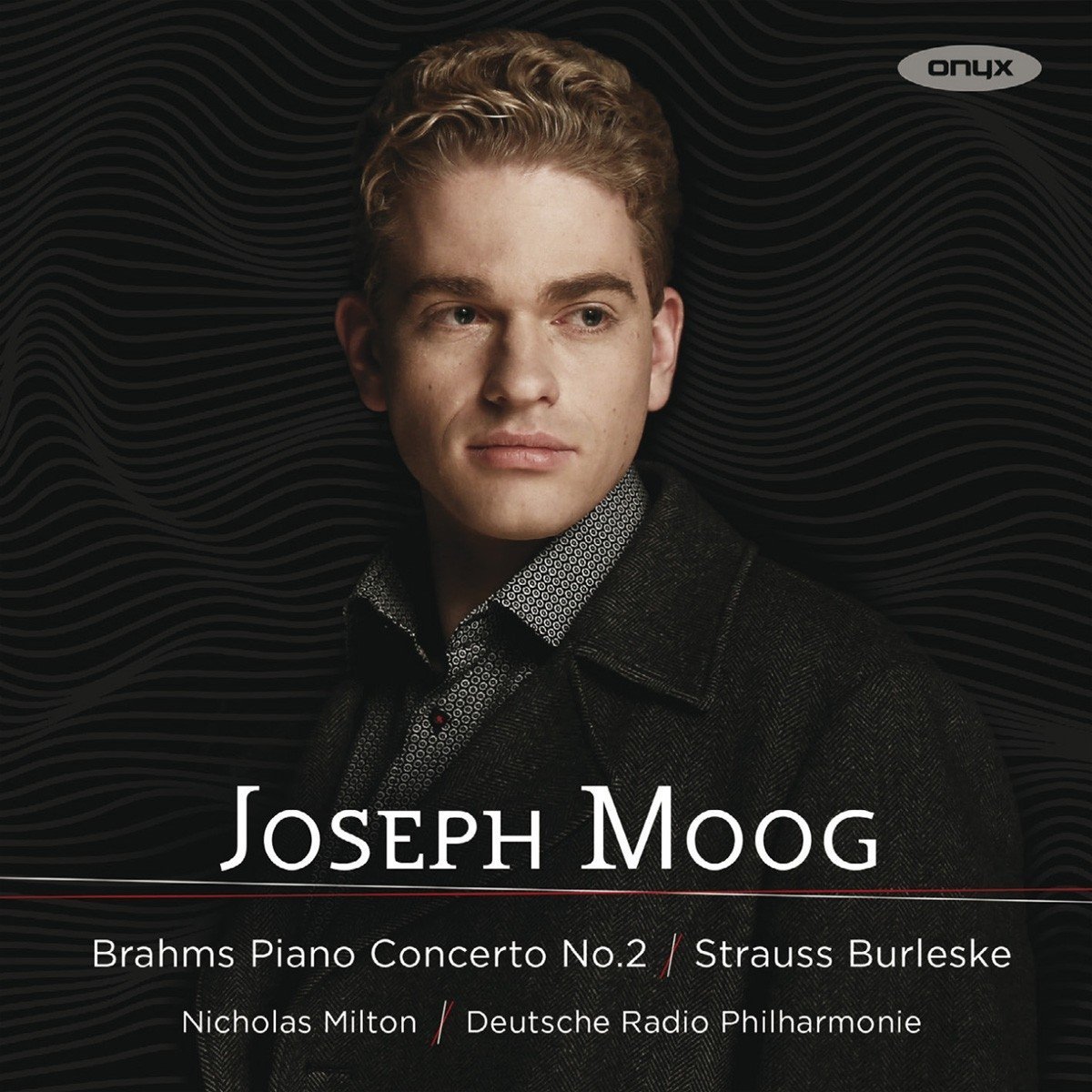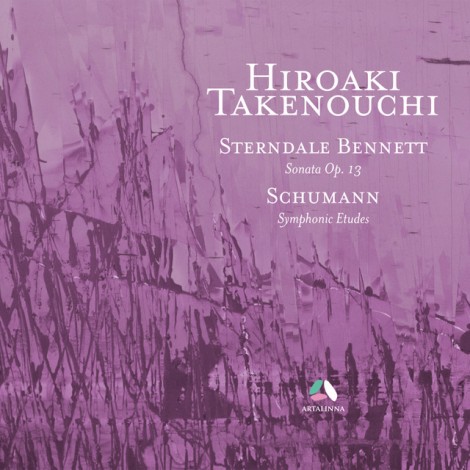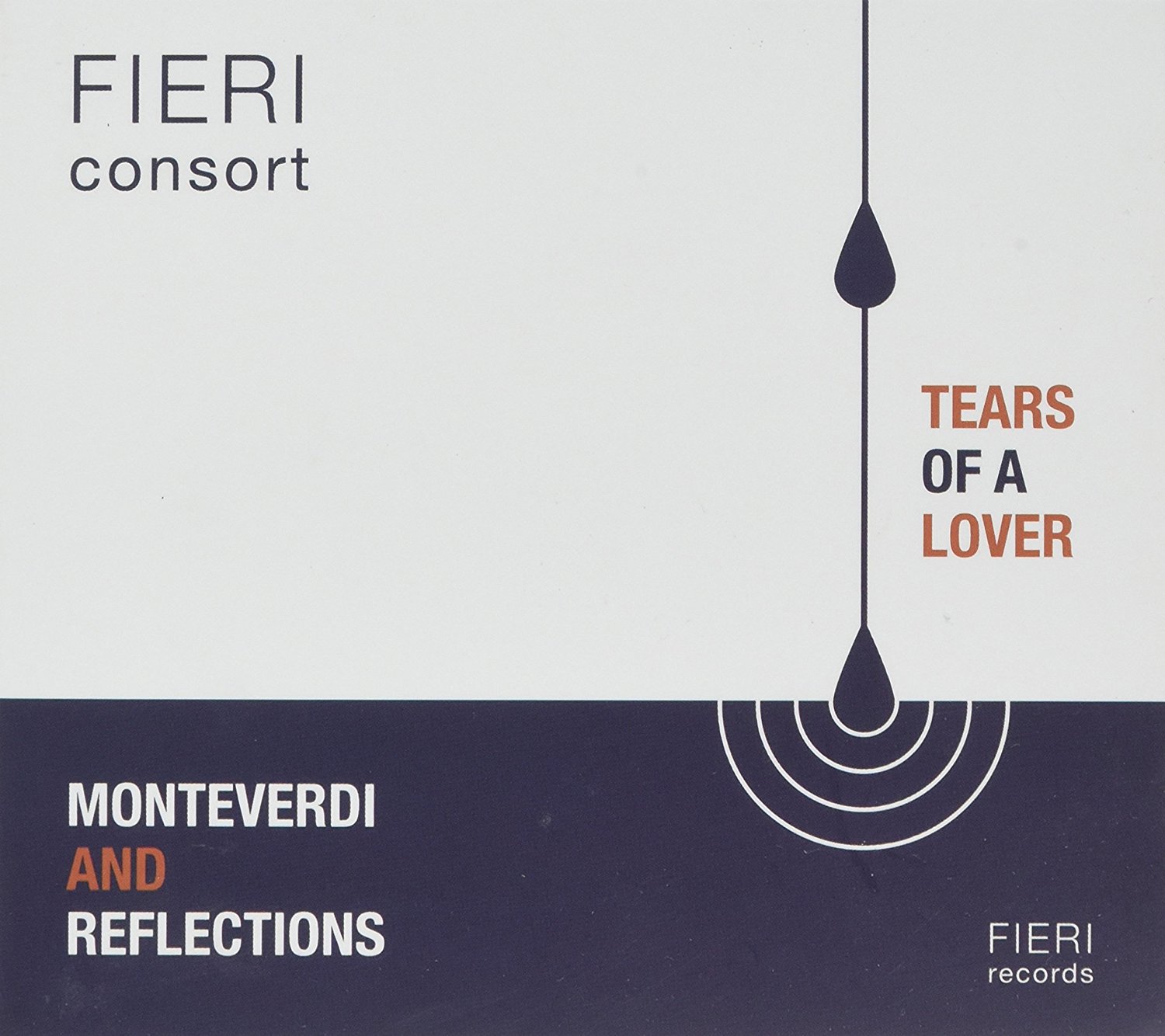Classical CDs Weekly: Brahms, Sterndale Bennett, Fieri Consort | reviews, news & interviews
Classical CDs Weekly: Brahms, Sterndale Bennett, Fieri Consort
Classical CDs Weekly: Brahms, Sterndale Bennett, Fieri Consort
Two discs of 19th century pianistic fireworks, plus a collection of Italian madrigals

 Brahms: Piano Concerto No. 2, Strauss: Burleske Joseph Moog (piano), Deutsche Radio Philharmonie/Nicholas Milton (Onyx)
Brahms: Piano Concerto No. 2, Strauss: Burleske Joseph Moog (piano), Deutsche Radio Philharmonie/Nicholas Milton (Onyx)
It's not you, it's me. That’s probably what I'd say to Brahms in attempting to explain why I generally prefer his craggy D minor piano concerto to its even longer sequel. That the two works are so different is a sign of Brahms's multifaceted genius, the B flat concerto's serene magnificence a happy reminder that growing older doesn’t necessarily mean becoming grumpier and terser. I've listened to this performance a lot over the past few days, and perhaps, at last, I'm starting to "get" this concerto. Joseph Moog understands that so much of it is exquisite, introverted chamber music, the glorious horn-led intro a throwback to Brahms's early Serenades. Though this isn't a somnambulant reading, Moog delighting in the extrovert outbursts. The flurry of notes 30 or so seconds in is like a wake up call, Onyx’s close sound balance appealingly vivid. The first movement's close is startling, every note clearly voiced under trilling winds and sonorous tutti chords. Moog’s punchy scherzo is a joy, the ideal prelude to a sublime account of the slow movement, the Deutsche Radio Philharmonie’s principle cello among the best you’ll hear. Brahms's superficially lightweight finale brings us back to earth with the softest of bumps, and I wasn’t left feeling shortchanged. Deeply impressive – can Moog and conductor Nicholas Milton give us No. 1 as well?
Richard Strauss’s unwieldy, entertaining Burleske makes for a good filler. Strauss had originally dedicated the piece to Brahms's champion Hans von Bülow – presumably knowing that it was way beyond Bülow’s technical reach. He later complained to Brahms that the work had “some genius, but in other respects it is horrifying.” Bülow was wrong: this is a witty showpiece, the piano’s fireworks matched by one of the best orchestral timpani parts in the repertoire. Not even Moog can prevent the Burleske feeling about five minutes too long, but the high spots compensate for the longeurs. The crepuscular close is fabulous here, timps and pianist shuffling off into the night.
 Sterndale Bennett: Piano Sonata Op. 13, Schumann: Symphonic Etudes Hiroaki Takenouchi (Artalinna)
Sterndale Bennett: Piano Sonata Op. 13, Schumann: Symphonic Etudes Hiroaki Takenouchi (Artalinna)
William Sterndale Bennett? Though his name suggests that of a Midlands carpet magnate, he was a moderately successful English romantic composer from Sheffield who knew Mendelssohn and Schumann. He'd impressed the former whilst studying at the Royal Academy of Music, travelling to Leipzig late in 1836 and spending seven months in the city. Schumann quickly became Bennett’s close friend, the pair’s relationship continuing until Schumann's death, and there's a sweet quote from Bennett's diary in this disc's sleeve note, written just before Bennett left Leipzig in 1837: “Schumann has been to spend an hour with me and drink a bottle of Porter… he is one of the finest-hearted fellows I ever knew.” Bennett's expansive, technically demanding Piano Sonata was offered to Mendelssohn as a wedding gift. While it's not quite Mendelssohn or Schumann, it's a hugely enjoyable listen, played with infectious authority by the young Japanese pianist Hiroaki Takenouchi. The sonata’s slightly prosaic opening is deceptive; this work gets better and better as it proceeds. Bennett’s stormy scherzo is a grower, the prelude to a heart-stopping slow movement and a vibrant, dark finale with an unexpected throwaway ending.
It's coupled with Schumann's Symphonic Etudes, which were dedicated to Bennett, its final variation containing an obscure operatic quote urging England to rejoice. Takenouchi’s lightness of touch is an asset; the faster etudes have an exhilarating lightness though the stops are pulled out for an overwhelming, clangorous coda. A lovely disc, beautifully recorded.
 Fieri Consort: Tears of a Lover - Monteverdi and Reflections (Fieri)
Fieri Consort: Tears of a Lover - Monteverdi and Reflections (Fieri)
Here, madrigals by Monteverdi and two of his contemporaries surround a new work by Ben Rowarth, whose The Turn uses a Monteverdi fragment as its starting point. There's invariably a lot of speculation involved in performing this repertoire, but this young eight-voiced choir do the music proud, the numbers occasionally accompanied by bass viol and Renaissance harp. Marc’Antonio Ingegneri’s Io non hebbi giami is an exquisite meditation on unrequited love, the anonymous poet’s assertion that “my tears be shed in solitude” set to music of rare poignancy. Luca Marenzio’s Se quel dolor sets a melancholy verse sequence by Tansillo. The texts are unbelievably dark, though there’s consolatory warmth in Marenzio’s music, the closing request that the reader “shed a tear on my ashes” coming as sweet relief. Monteverdi’s own Interotte speranze springs into life thanks to some exquisite instrumental work from violist Alison Kinder and harpist Aileen Henry.
Rowarth’s The Turn has four newly composed numbers placed within Monteverdi’s Lamento d’Arianna, the final Ohime bei viso depicting Arianna’s literal turning away from her lover Teseo. Hear it and weep: this unlikely melding of 16th and 21st century styles works well, with Monteverdi’s harmonic inventiveness mirrored by Rowarth’s bolder language. The rich, resonant recording helps: who’d have thought that St Matthew’s Church in Bethnal Green could sound so, er, Venetian? Appealing sleeve art too – a winner.
Share this article
Add comment
Subscribe to theartsdesk.com
Thank you for continuing to read our work on theartsdesk.com. For unlimited access to every article in its entirety, including our archive of more than 15,000 pieces, we're asking for £5 per month or £40 per year. We feel it's a very good deal, and hope you do too.
To take a subscription now simply click here.
And if you're looking for that extra gift for a friend or family member, why not treat them to a theartsdesk.com gift subscription?
more Classical music
 Britten Sinfonia, The Marian Consort, Milton Court review - a journey around turbulent spirit Gesualdo
Contemporary homages among the works in this celebration of the Renaissance 'badass'
Britten Sinfonia, The Marian Consort, Milton Court review - a journey around turbulent spirit Gesualdo
Contemporary homages among the works in this celebration of the Renaissance 'badass'
 Classical CDs: Coffee, peppercorns and puppets
A prolific conductor's centenary celebrated, plus Hungarian ballet music and baroque keyboard concertos
Classical CDs: Coffee, peppercorns and puppets
A prolific conductor's centenary celebrated, plus Hungarian ballet music and baroque keyboard concertos
 Sansara, Manchester Collective, Bridgewater Hall, Manchester review - sense of a unique experience
Three world premieres all respond to Feldman’s Rothko Chapel
Sansara, Manchester Collective, Bridgewater Hall, Manchester review - sense of a unique experience
Three world premieres all respond to Feldman’s Rothko Chapel
 Gomyo, National Symphony Orchestra, Kuokman, National Concert Hall, Dublin review - painful brilliance around a heart of darkness
A violinist for all facets of a towering Shostakovich masterpiece
Gomyo, National Symphony Orchestra, Kuokman, National Concert Hall, Dublin review - painful brilliance around a heart of darkness
A violinist for all facets of a towering Shostakovich masterpiece
 Remembering conductor Andrew Davis (1944-2024)
Fellow conductors, singers, instrumentalists and administrators recall a true Mensch
Remembering conductor Andrew Davis (1944-2024)
Fellow conductors, singers, instrumentalists and administrators recall a true Mensch
 Hallé, Wong, Bridgewater Hall, Manchester review - meeting a musical communicator
Drama and emotional power from a new principal conductor
Hallé, Wong, Bridgewater Hall, Manchester review - meeting a musical communicator
Drama and emotional power from a new principal conductor
 Guildhall School Gold Medal 2024, Barbican review - quirky-wonderful programme ending in an award
Ginastera spolights the harp, Nino Rota the double bass in dazzling performances
Guildhall School Gold Medal 2024, Barbican review - quirky-wonderful programme ending in an award
Ginastera spolights the harp, Nino Rota the double bass in dazzling performances
 Queyras, Philharmonia, Suzuki, RFH review - Romantic journeys
Japan's Bach maestro flourishes in fresh fields
Queyras, Philharmonia, Suzuki, RFH review - Romantic journeys
Japan's Bach maestro flourishes in fresh fields
 Classical CDs: Swans, hamlets and bossa nova
A promising young pianist's debut disc, plus Finnish mythology and a trio of neglected British composers
Classical CDs: Swans, hamlets and bossa nova
A promising young pianist's debut disc, plus Finnish mythology and a trio of neglected British composers
 Christian Pierre La Marca, Yaman Okur, St Martin-in-The-Fields review - engagingly subversive pairing falls short
A collaboration between a cellist and a breakdancer doesn't achieve lift off
Christian Pierre La Marca, Yaman Okur, St Martin-in-The-Fields review - engagingly subversive pairing falls short
A collaboration between a cellist and a breakdancer doesn't achieve lift off
 Ridout, Włoszczowska, Crawford, Lai, Posner, Wigmore Hall review - electrifying teamwork
High-voltage Mozart and Schoenberg, blended Brahms, in a fascinating programme
Ridout, Włoszczowska, Crawford, Lai, Posner, Wigmore Hall review - electrifying teamwork
High-voltage Mozart and Schoenberg, blended Brahms, in a fascinating programme
 Sabine Devieilhe, Mathieu Pordoy, Wigmore Hall review - enchantment in Mozart and Strauss
Leading French soprano shines beyond diva excess
Sabine Devieilhe, Mathieu Pordoy, Wigmore Hall review - enchantment in Mozart and Strauss
Leading French soprano shines beyond diva excess

Comments
Moog, Milton and the DRP